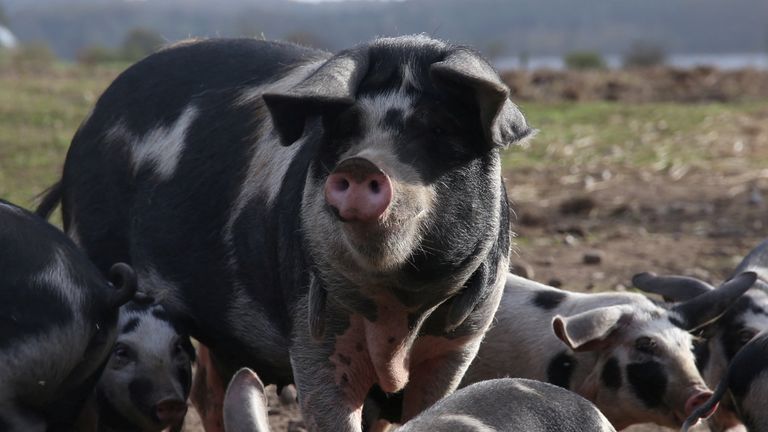“Oink oink?” “Yes, of course.”
Communication with pigs may soon be possible as scientists say they have developed an AI tool that can interpret what the animals are saying.
While it’s not quite Doctor Doolittle, the algorithm is capable of decoding pig sounds and could potentially alert farmers to negative emotions, researchers say.
It’s hoped the tool can help improve animal welfare.
The scientists, from universities in Denmark, Germany, Switzerland, France, Norway and the Czech Republic, used thousands of recorded pig sounds from different scenarios to build the algorithm.
Scenarios include play, isolation and competition for food, and they found that that grunts, oinks, and squeals reveal positive or negative emotions.
“Emotions of animals are central to their welfare, but we don’t measure it much on farms,” says study co-leader Elodie Mandel-Briefer, a behavioural biologist at University of Copenhagen.
The study found that pigs kept in outdoor, free-range or organic farms, with the ability to roam and dig in the dirt, produced fewer stress calls than conventionally raised pigs.
Researchers think this method could one day be used to label farms, helping consumers make informed choices.
“Once we have the tool working, farmers can have an app on their phone that can translate what their pigs are saying in terms of emotions,” Ms Mandel-Briefer said.
So what do the sounds mean? Let’s have a look at some of the study’s findings.
• Short grunts typically indicate positive emotions
• Long grunts often signal discomfort
• High-frequency sounds like screams or squeals usually mean the pigs are stressed

